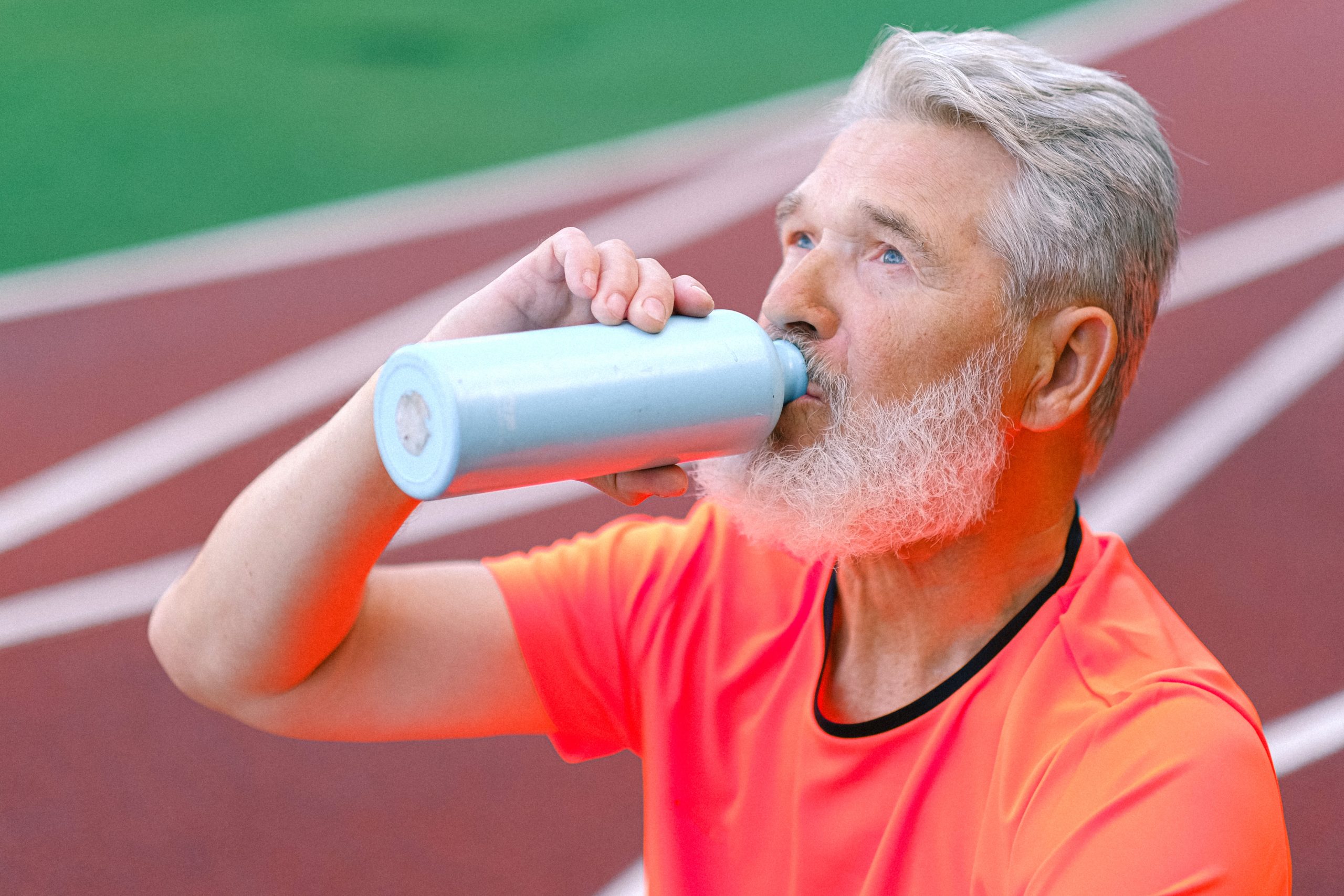Hydration Tips for Older Adults

Through the soaring temperatures and warm weather activities of the summer months, dehydration—or not getting enough fluids—can create serious health problems for people of all ages. Older adults are always at a greater risk of dehydration, not just during periods of high temperatures, and it is a common cause of hospitalization for people over 65. With age, the ability to store water naturally decreases due to changes in muscle mass and kidney function. A person’s sense of thirst also weakens, health conditions or medications can impact the ability to retain fluids and other factors like memory problems or incontinence can affect water intake and hydration levels.
Water is critical for almost every bodily function, including lubricating and cushioning joints and organs, regulating body temperature, moving nutrients and waste through the body and boosting immunity. Read on for the warning signs of dehydration and some tips to help you or a loved stay healthy and hydrated.
Signs to Watch for:
If you’re worried about a loved one’s hydration—or your own fluid intake—it’s important to watch for the early signs before dehydration becomes a big problem. Signs of dehydration can include:
- Dark yellow or smelly urine
- Dry mouth and tongue
- Headache
- Constipation
- Muscle cramps (especially in legs, feet and hands)
- Irritability
- Fatigue
- Cold hands and feet
The more serious signs that require immediate medical attention include:
- Rapid heart rate and breathing
- Fainting
- Weak pulse
- Confusion or disorientation
- Difficulty walking
- Diarrhea or vomiting that lasts longer than 24 hours
Staying hydrated is particularly important as you age because a dehydrated older adult may experience dizziness and weakness increasing their risk of falls and injury. Even mild dehydration can cause fatigue, poor concentration, memory problems and slower reaction times.
If dehydration is left untreated it can lead to serious complications like urinary and kidney problems, seizures, or hypovolemic shock, which is a life-threatening condition that impacts blood pressure and oxygen levels.
Preventing Dehydration
The amount of water that a person needs to drink each day is different for everyone. The general rule of eight glasses a day has been widely shared as it’s easy to remember. However, some people may require less and others often need more, especially if someone is out in the heat and sweating. It is important to remember that the body’s thirst signal diminishes with age, so once you feel thirsty you may well already be dehydrated. Follow these tips to help you or a loved one stay well hydrated:
Make it Easy
Many seniors struggle to drink a full glass of water in one sitting as it can be too filling or can cause uncomfortable bloating or frequent bathroom trips. Instead make sure that water is accessible and within your line of sight for a constant reminder to take a sip. Keep a water bottle where you or your loved one spend most of your time, encourage water with every meal, at medication times, after waking up in the morning and always before and after exercise.
Set Reminders
If you or someone you are caring for are struggling with being forgetful or too busy to drink, try setting reminders on your phone or downloading a free hydration app to help you. Don’t focus as much on the amount, but rather that fluids are being taken consistently throughout the day.
Mix it Up
Water is always the best choice, but it’s not the only way to stay hydrated. If you or someone you are caring for do not find water appealing, experiment with different beverages and serving temperatures. Try fruit-infused, plant-based or carbonated water, chilled herbal tea, smoothies, homemade juice and water popsicles, warm milk, or a low-sodium soup broth. Extra touches like a fruit garnish on the rim, a dash of fruit juice to water for colour, or crushed ice can also make beverages more appealing without adding unnecessary sugar or calories.
Eat Water-Dense Food
Daily fluids do not have to come from beverages alone and raw fruits and vegetables with a high water content can prevent dehydration without significantly changing the amount of liquid you drink. Fluid-filled lettuce, celery, cucumber, watermelon, grapes, peppers and tomatoes, for example, are not only hydrating but also packed with vitamins, minerals and antioxidants that promote overall health.
These guidelines are general recommendations and you should always touch base with a doctor before making any significant changes to you or your loved one’s liquid intake or diet. Some chronic medical conditions like heart failure, kidney or liver disease may require intentional fluid restrictions.
If you are concerned about your loved one’s ability to stay hydrated, or if they could benefit from help with other daily tasks, contact VHA’s Enterprise Health Solutions team at 416-489-2500 ext. 4649 or by email at ehs@vha.ca.

